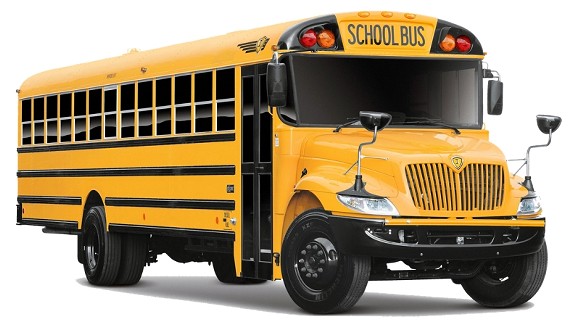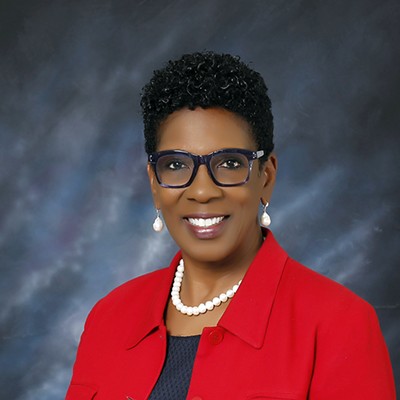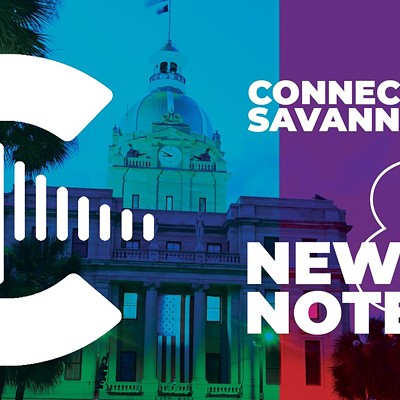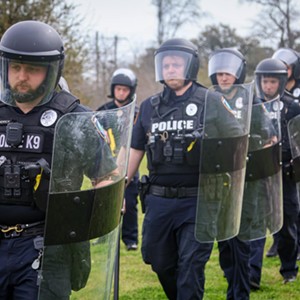THIS WEEK, the buses of the Savannah-Chatham County Public School System begin their yearly rounds.
Between this Thursday and May 20, 2016 they’ll cover about six million miles—25 times the distance from the earth to the moon.
In a fleet of over 400 buses, they transport over 22,000 students a year, roughly half the district’s total enrollment.
This year, however, a new company will drive the taxpayer-owned buses, maintain them, and determine their routes.
From 2006-2015, Savannah-Chatham schools contracted bus service to the multinational firm First Student, largest school transport company in North America and owned by UK-based FirstGroup.
As of this past spring, however, that contract—amounting to about $10 million a year—was awarded to Reliant Transportation, a subsidiary of Dallas-based MV Transportation.
The relationship between Savannah-Chatham schools and First Student has been tense for years, with constant parent and school board complaints about late or non-arriving buses, routes that seemingly made no sense, and incompetent, sometimes reckless drivers.
The average age of the fleet owned by the school system is nine years—the oldest buses being 1998 models—but that actually isn’t particularly unusual.
What is unusual, however, is the dangerous condition the buses were left in by the previous contractor, First Student, and how that information had such a difficult time seeing the light of day.
THIS YEAR, incoming School Board President Jolene Byrne made it clear that a divorce from First Student was on her wish list.
“When I took office in January one of my goals was to get rid of First Student. So many parents had complained to me, and I knew that the board was frustrated with them as well,” Byrne tells Connect.
“First Student had a long track record of late and lost buses, terrible customer service, and incompetent routing. It wasn’t until I was elected that I understood that maintenance was also a major issue.”
How major?
How about three out of every four buses being unsafe for the road?
A fleet assessment audit in November 2014 performed by Marshall Casey of Casey’s Kustoms shows an apparently institutional neglect of basic safety maintenance as called for by the contract.
In the audit Casey writes:
“I found no documented evidence of a process that would insure that all defects were actually assigned and repaired.... in many cases the same defects were being recorded consistently month after month indicating that many repairs are being deferred for several months.”
For example, the auditor cites the case study of Bus Number 06-15.
In November, that particular bus was still transporting children despite having been identified as having nine maintenance/safety problems that would put it Out of Service, or “OOS” in bus jargon.
Casey writes that Bernie Vardzel, Regional Maintenance Manager of First Student, “could not produce for me any work orders indicating that any of the defects had been repaired prior to the bus returning to service.”
More disturbing, necessary repairs apparently went completely unnoticed by First Student crews.
For example, the audit finds that Bus Number 07-41 had both wiper blades defective, an inoperable windshield washer, “2 rolls of paper towels stuck behind mirror over driver’s area,” both cross view mirrors maladjusted, front roof hatch stuck closed, “strong smell of coolant near rear heater unit,” coolant reservoir hose leaking, support strap for coolant hose broken, front bumper bent, crossing gate improperly mounted, “wire to top stop arm cut,” battery hold-downs loose, “transmission fluid leaking with engine running,” neither stop arm capable of opening 90 degrees, among many other defects.
But First Student’s Ga. Dept. of Education-compliant maintenance log lists just a single problem with Bus Number 07-41:
“Defects: Flasher/strobe.”
One of the audit’s conclusions is that “the majority of the vehicles inspected exhibited what should have been considered OOS type defects and raises serious concern over student safety and overall fleet condition.”
To be fair, First Student employees seem not to have been given much incentive to do high-quality work.
An entry-level mechanic employed by First Student in Chatham County started at just $13.75 an hour. They got a whopping dime-an-hour raise from First Student for each ASE certification earned (at the time of the audit, only two mechanics had any ASE certifications at all).
Sometimes they were even asked to drive buses in addition to their regular duties.
In all, 75 percent of the fleet as inherited by MV wasn’t roadworthy by state or federal standards, with over 7,000 safety or maintenance defects being discovered so far.
Among the defects, says a source within MV, are “brake shoes, brake drums, oil leaks, electrical problems. Emergency doors that didn’t work. Emergency door buzzers that didn’t work. Wheelchair lifts held up by broomsticks. Fifty wheelchair lifts that needed to be completely repaired.”
ASIDE FROM the deplorably unsafe condition First Student left the fleet in, there’s the issue of how Reliant/MV and the local school board were caught so unaware.
Though the damning audit was done in Nov. 2014, Board President Byrne didn’t receive a copy of it until last week—just a couple of days before Connect did.
And she received it not from Savannah-Chatham Public School Superintendent Thomas Lockamy or his staff—who clearly knew of the audit’s existence long before the Board did—but from MV itself.
“I received the audit from MV in paper form on July 25 and electronically on July 27,” says Byrne. “I did not know it existed until MV informed me of it in June.”
How did it come to this?
Perhaps a clue came in the pre-bid meeting in March, after a Request For Proposals went out for a new bus contractor.
Buried in the 103 questions recorded as having been asked of school representatives by potential bidders, at number 81, is this question:
“Will the district set up a time for proposers to look at district buses?”
The school system’s one-word answer:
“No.”
That’s right: The school system wasn’t going to allow the new contractor to inspect the buses before the bid on a two-year, $20 million contract.
There were four companies originally interested in bidding. But because of the very short turnaround before this school year, not to mention the lack of reliable information, two dropped out.
That left MV—and First Student itself.
This past April 1, the Board unanimously voted to accept MV’s bid.
And then MV was able to take their first look at the buses.
The April Fools Day joke was on them.
THE NEW CONTRACT with MV says Savannah-Chatham’s buses will be in “good condition” upon the takeover, which any reasonable person would see isn’t the case.
So the company was faced with a dilemma: How to honor their end of the contract and provide safe service by Aug. 6, when Savannah-Chatham’s end of the deal was honored in something less than 100 percent good faith.
Mike Vaquer, spokesman for Reliant, says “Reliant Transportation will not put unsafe buses on the road to transport this community’s children, period.”
Reliant mechanics are now working overlapping 12-hour shifts to ready what vehicles they can. To make up for the huge amount of buses which the company either cannot fix in time or which are simply too far gone to be repaired anytime soon, they’re also leasing buses from other school systems, such as Columbus, Ga.
And a small number of brand-new buses are awaited to come off assembly lines in Oklahoma.
After a series of face-to-face meetings and other correspondence, Reliant President Kevin Klika sent a letter to Superintendent Lockamy on July 28, further detailing the challenges of having the decrepit fleet roadworthy by Aug. 6.
While the fleet optimally needs 415 buses, in the letter Klika says as of last week they’d only be able to have 294 ready to go. (That number has since been revised upward.)
Klika goes on to write:
“We came into this community with limited knowledge, based on news reports, that there had been several safety issues with the fleet,” he says. “However, it was not until we had a signed contract with the District that we were able to do any thorough maintenance inspections.”
Klika maintains that during the bidding process, “there was never any indication from Savannah-Chatham County Public School System staff that the bus fleet was severely below an acceptable or industry standard of repair.”
Klika continues:
“At no time did the District’s staff provide our company with a copy of the fleet maintenance audit conducted in the fall of 2014 that clearly determined the fleet was unsafe and was not properly maintained.”
In a stunning display of hubris, Vanessa Miller-Kaigler, Savannah-Chatham’s Chief of Facilities Management and Support Services, wrote back to Klika:
“To be clear, Reliant is obligated under the terms of the Student Transportation Services Agreement to ensure that all students are transported safely.”
Miller-Kaigler went on:
“With respect to your comments about the condition of the bus fleet, we suggest that finger-pointing is not a productive endeavor, and as your client, we expect your company’s full attention in building a relationship with the school district that is supportive of a high-quality transportation service,” she wrote.
“Reliant had ample opportunity to inspect the fleet prior to the execution of the Services Agreement,” she says—an arguable statement at best.
Then Miller-Kaigler taunts:
“I would be surprised to hear that a sophisticated company of Reliant’s caliber was somehow caught unaware because it ‘naturally assumed’ certain facts about the status of the fleet.”
In short, the Savannah-Chatham school system is now holding MV accountable for the maintenance it neglected for years to hold First Student accountable for.
MV’s response is to do as much as it can, as fast as it can. “So far they’ve gone above and beyond,” says Jolene Byrne.
“I have high hopes for this new provider. At the very least, I’m confident that they will always put safety for our students first,” she says.
As this issue goes to press, an MV spokesman tells us that through a combination of hard-working mechanics, leased vehicles, and new vehicles coming in from Oklahoma, they’ve managed to put together the minimum number of buses needed to successfully open the school year.
Bluster and bravado aside, Savannah-Chatham schools are suing First Student for the added cost of maintenance it never performed.
In addition, they’re holding back the final $2 million owed First Student, though that’s unlikely to be near enough to cover the cost.
As for Byrne: Does she regret pushing so hard so quickly for a new bus company?
In hindsight, would it have been better to wait another year?
“There is no way we could have continued with First Student,” Byrne answers.
“They allowed hazardous buses to transport children, and based on the condition of the fleet at the end of the school year, nothing had changed.”

































